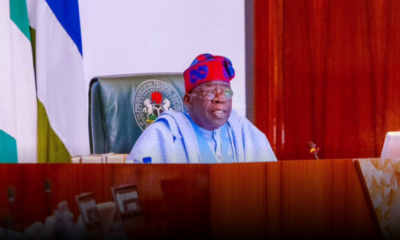- Board may suspend foreign scholarships
Over 137 of the fund’s sponsored students who were studying abroad, according to Sonny Echono, executive secretary of the Tertiary Education Trust Fund (TETFund), have absconded.
During his Tuesday appearance before the House of Representatives’ special committee looking into the alleged “abuse” of the N2.3 trillion tertiary education tax by TETFund, Echono gave a speech.
The executive secretary claimed that after completing their courses, the TETFund-sponsored scholars who were sent abroad for “higher education” refused to come back.
“Some of the scholars that have been sponsored, unpatriotically when they go, they enjoy our scholarship, acquire a higher degree, then refuse to come back. It has become a major crisis,” he said.
“The scholarship requires that you will come back. It is required that you have a guarantor and in many cases, the guarantor has suffered undue hardship because when you disappear, we hold the guarantor to pay all the money expended on your behalf but that has not been effective.”
Echono said TETFund is working with stakeholders for “stringent and effective measures” to be taken against those who refuse to return to the country for Nigerians to benefit from their expertise.
“We believe that in a system where we work with our embassies and the institutions, we can enforce the repayment for those who insist they will not come back,” he said.
The executive secretary said if the scholars who don’t want to return to the country refuse to repay the money expended on their programs, they will be declared persona non grata.
“We will write to the embassies and they will make it available to those countries and they will not be able to get jobs. They will be seen as fugitives of law from their countries,” Echono said.
“We may have to take that hard stand because the numbers are alarming. We just checked about 40 institutions and over 137 absconders and the review is ongoing.
“It is a huge number that we cannot afford and so we will be seeking your support to strengthen some of the existing regulations to ensure that those who benefit from this program must come back.
“We are not against people looking for greener pastures but do so on your own, not through our scholarship or our sponsorship.”
The executive secretary said TETFund may suspend foreign scholarship due to the exchange rate crisis.
Echono said that some of the taxes are paid to TETFund in foreign currencies at the account domiciled with the Central Bank of Nigeria (CBN) but when fees are to be paid for scholars abroad, the apex bank insists on TETFUND sourcing forex by itself.
“We operate a system where our forex is being sold on our behalf at an official rate and we apply like anybody else to get it, sometimes it leads to additional cost,” he said.
“Currently as I speak, we are in consultations with all our stakeholders to suspend foreign training for a year or two.
“This is because of the recent exchange rate adjustments. We are unable to continue based on our disbursement guidelines.
“The money we allocated in naira cannot cover the dollar requirement for training. For those who are currently there, we now need more naira to pay for the dollar that is required for their annual fees. We are trying to put a hold.”
He said most of our training will now be done locally through “our experienced, first-generation universities and other specialized universities” in the country.
“This way we can retain our resources in-house and cope with the change of foreign exchange variation,” he said.
Echono also said the federal government was owning TETFund N371.3 billion out of which it has repaid N46 billion so far.
The executive secretary denied the allegations that TETFund mismanaged funds to the tune of N2.3 trillion.
Meanwhile, Oluwole Oke, chairman of the committee, said the probe is not to witchhunt, adding that the lawmakers are out to stop the misuse of public funds.

 BIG STORY3 days ago
BIG STORY3 days ago
 BIG STORY5 days ago
BIG STORY5 days ago
 BIG STORY4 days ago
BIG STORY4 days ago
 BIG STORY5 days ago
BIG STORY5 days ago
 BIG STORY1 day ago
BIG STORY1 day ago
 BIG STORY4 days ago
BIG STORY4 days ago
 BIG STORY2 days ago
BIG STORY2 days ago
 BIG STORY3 days ago
BIG STORY3 days ago






















